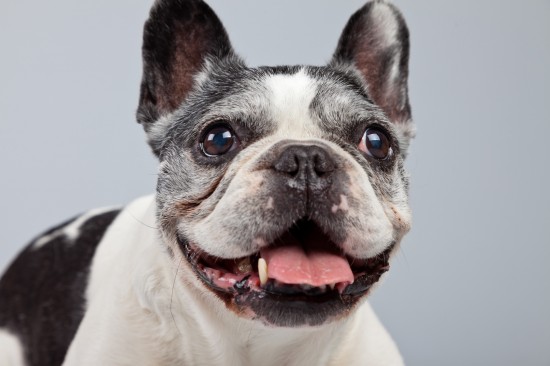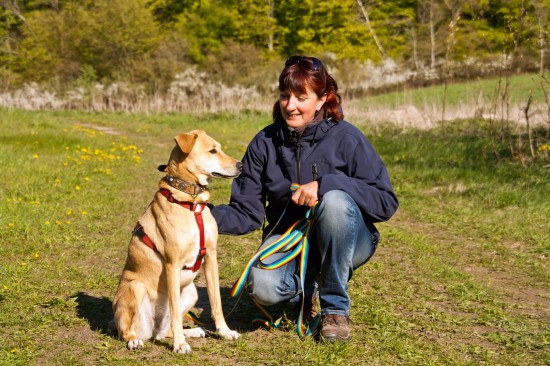


The French bulldog is a small dog breed that is also known as the “Frenchie,” and which was created in France from the crossing of local ratting dogs, and imported bulldogs from England. They are commonly classed as companion dogs and lap dogs, and do not have a direct working history in their own right, and make for excellent companions due to their sweet, loving and loyal natures.
However, despite their popularity as pets and the sheer number of dogs of the breed owned worldwide, the French bulldog is one of the most high-profile breeds in terms of their potential for hereditary health problems and issues that arise in their reproduction. This means that their ownership may come accompanied with health and conformation problems, and potential owners should make themselves fully aware of these before committing to a purchase.
In this article, we will look at some of the health challenges faced by the French bulldog breed as a whole in more detail. Read on to learn more.
First of all, the French bulldog is not an easy dog to breed, due to issues with their build and conformation that affects every aspect of the process from conception to birth.
Many French bulldog males are incapable of breeding naturally, as the narrowness of their hips means that they are unable to successfully mount and tie with the bitch, which necessitates artificial insemination in order to enable conception. French bulldog bitches are also prone to irregular seasons and silent heats, making it hard to judge when the bitch will come into season and arrange breeding.
Due to the fact that the hips of the bitch are also narrow, and the heads of the puppies are large, as many as 80% of litters born to French bulldogs will require delivery by means of caesarean section.
The breed as a whole has a heightened propensity to suffer from any number of problems with their eyes too, including conditions such as cherry eye, or a protrusion of the third eyelid. Retinal fold dysplasia, glaucoma and corneal ulcers also afflict the breed too.
Juvenile cataracts may occur in young dogs with a higher incidence rate than most other breeds, and mature dogs are also apt to develop cataracts in later life. Light coloured dogs of the breed are prone to tear staining, and the eyes and muzzle as a whole require regular cleaning and thorough drying.
The Canine Eye Registration Foundation (CERF) recommends screening of potential parent dogs, in order to identify a potential predisposition to certain eye problems, in order to avoid breeding from affected dogs.
The French bulldog is a brachycephalic dog, which means that their muzzles are very short and squat in appearance. This can lead to a range of problems, which greatly depend on how pronounced the shortness of the muzzle is.
The shortness of the muzzle can lead to problems with the dog being able to pant effectively, which is vital to maintaining body temperature, and special care should be taken of the French bulldog in hot weather. The breed can be prone to a condition called brachycephalic syndrome, which presents a range of challenges to the dog, all related to their shortened airways.
Notably, a significant number of commercial airlines refuse to carry French bulldogs, due to the heat and stress involved in travel, which can prove very dangerous and even fatal to dogs of the breed.
The French bulldog breed as a whole as a heightened genetic predisposition to a range of other health problems too. Spinal problems and general problems with the back are common within the breed, partially related to the fact that the French bulldog was bred from dwarf bulldogs, which introduces the challenges of chondrodysplasia, or partial dwarfism. Again, health testing of potential parent dogs prior to breeding can help to identify particularly high-risk dogs.
Patellar luxation, a slipping or dislocation of the kneecap can also affect the breed, and may be due to a congenital deformity present from birth, or due to an accident or injury in later life. Once more, pre-breeding testing and screening is available for parent dogs.
While the French bulldog is a very friendly, personable and rewarding dog to own, due to their propensity to health problems, this can make them costly to insure. The purchase price of French bulldog puppies may be higher than for many other breeds too, as commercial breeding endeavours need to factor in the additional costs of things like pre-breeding health screening, artificial insemination in order to breed, and caesarean delivery.
Special care must be taken of the French bulldog throughout their lives in order to promptly identify any health problems, and also, to ensure that the dog is kept cool enough during hot weather.
 Tips For Dealing With Puppy Crying
Tips For Dealing
Tips For Dealing With Puppy Crying
Tips For Dealing
 5 Luxurious Dog Friendly Establishments Dotted Around The Country
5 Luxurious Dog F
5 Luxurious Dog Friendly Establishments Dotted Around The Country
5 Luxurious Dog F
 Bengal Cat Colours And Coat Types
Bengal Cat Colour
Bengal Cat Colours And Coat Types
Bengal Cat Colour
 Keeping Your Cat Off Worktops And Counters
Keeping Your Cat
Keeping Your Cat Off Worktops And Counters
Keeping Your Cat
 Walking The Dog - Three Common Challenges You Might Encounter
Walking The Dog -
Walking The Dog - Three Common Challenges You Might Encounter
Walking The Dog -
Copyright © 2005-2016 Pet Information All Rights Reserved
Contact us: www162date@outlook.com